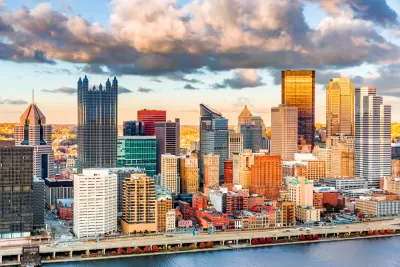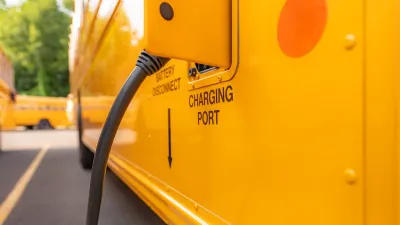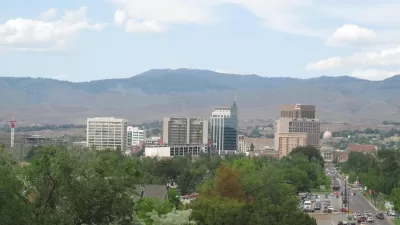In addition to reducing emissions, the agency officials hope the climate action plan will help increase ridership and boost their competitiveness when applying for federal transit funding.

The Pittsburgh Regional Transit agency has set a goal to reach net zero carbon emissions by 2045 as part of the city’s first climate action plan, according to 90.5 WESA, Pittsburgh’s NPR news station. “The agency plans to reduce the 104.5 million tons of carbon emissions it produces each year by expanding its electric bus fleet, purchasing light rail cars that use less electricity and switching to solar power to run their buildings,” writes Julia Fraser. It also aims to get more people to ride buses, both to reduce emissions and to keep their transit system solvent.
Increasing ridership is an ambitious goal, as transit ridership in both Pittsburgh and across the country dipped when the pandemic hit and has been slow to rebound. “Pittsburgh’s ridership only rebounded back to 64% of its pre-pandemic level for that week. And so far this year, fewer Pittsburghers have taken transit than in 2023, according to Pittsburgh Regional Transit data,” Fraser reports.
Buses are the biggest source of emissions for the agency and therefore the area where it can make the biggest impact. But with only nine electric buses (and 14 more on the way, according to the article) out of a fleet of 729 diesel vehicles, it will be a while before they reach their 100 percent electric goal, particularly given the challenges installing charging infrastructure and retraining mechanics, as well as growing pains the electric bus industry has faced lately. The city is also looking into hydrogen-cell-fueled buses as an alternative. It will also be expensive, as the agency already faces a “fiscal cliff” as federal pandemic relief money comes to an end this year. But just having a climate plan enables the agency to go after more money and stay competitive for current funding, Derek Dauphin, director of planning and service development at Pittsburgh Regional Transit, told 90.5 WESA.
FULL STORY: Pittsburgh Regional Transit climate plan aims to increase ridership, reduce emissions

Alabama: Trump Terminates Settlements for Black Communities Harmed By Raw Sewage
Trump deemed the landmark civil rights agreement “illegal DEI and environmental justice policy.”

Planetizen Federal Action Tracker
A weekly monitor of how Trump’s orders and actions are impacting planners and planning in America.

The 120 Year Old Tiny Home Villages That Sheltered San Francisco’s Earthquake Refugees
More than a century ago, San Francisco mobilized to house thousands of residents displaced by the 1906 earthquake. Could their strategy offer a model for the present?

In Both Crashes and Crime, Public Transportation is Far Safer than Driving
Contrary to popular assumptions, public transportation has far lower crash and crime rates than automobile travel. For safer communities, improve and encourage transit travel.

Report: Zoning Reforms Should Complement Nashville’s Ambitious Transit Plan
Without reform, restrictive zoning codes will limit the impact of the city’s planned transit expansion and could exclude some of the residents who depend on transit the most.

Judge Orders Release of Frozen IRA, IIJA Funding
The decision is a victory for environmental groups who charged that freezing funds for critical infrastructure and disaster response programs caused “real and irreparable harm” to communities.
Urban Design for Planners 1: Software Tools
This six-course series explores essential urban design concepts using open source software and equips planners with the tools they need to participate fully in the urban design process.
Planning for Universal Design
Learn the tools for implementing Universal Design in planning regulations.
Clanton & Associates, Inc.
Jessamine County Fiscal Court
Institute for Housing and Urban Development Studies (IHS)
City of Grandview
Harvard GSD Executive Education
Toledo-Lucas County Plan Commissions
Salt Lake City
NYU Wagner Graduate School of Public Service





























